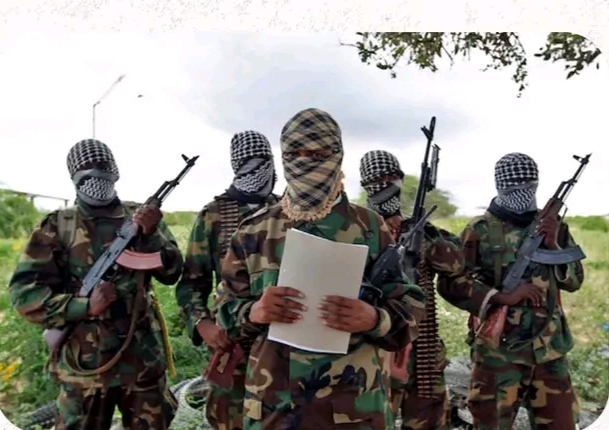
By Paul Ebi
The Islamic State West Africa Province (ISWAP) has reportedly issued a directive to its members, warning them to limit movement and avoid public gatherings amid what it described as increased surveillance and intelligence operations by the United States in Nigeria.
According to intelligence sources, the internal communication—circulated among ISWAP commanders and foot soldiers—urged fighters to remain cautious, citing fears of precision drone strikes and interception of communications by foreign forces.
The warning comes on the heels of recent security alerts from the United States and the United Kingdom advising their citizens in Nigeria to exercise heightened caution due to the threat of terrorist attacks, particularly in Abuja and other major cities.
A security analyst familiar with the development said the latest ISWAP directive signals growing anxiety within the terror group following intensified multinational counter-terrorism operations in the Lake Chad Basin and North-East Nigeria.
> “They are aware that intelligence sharing between Nigeria and Western allies has improved significantly. This has made it difficult for them to move freely or plan large-scale attacks undetected,” the analyst noted.
In recent weeks, the Nigerian military has launched several offensives targeting ISWAP hideouts in Borno, Yobe, and Adamawa States, leading to the elimination of several top commanders and the capture of weapons caches.
While the Nigerian Defence Headquarters has not issued an official response to the reported ISWAP warning, military sources say surveillance and air reconnaissance missions have been intensified across the North-East and border regions.
The renewed vigilance follows fears that ISWAP may be plotting coordinated attacks to mark the end of the year, a pattern seen in previous years.
Security experts have called for enhanced civilian cooperation and intelligence gathering to forestall any planned strikes and maintain regional stability.
> “This is not the time for complacency,” one expert said. “The public must remain alert and report any suspicious movements to authorities.”
Nigeria continues to battle multiple security challenges, including insurgency, banditry, and communal conflicts, even as the government pledges to sustain efforts to restore peace and stability across the nation.





